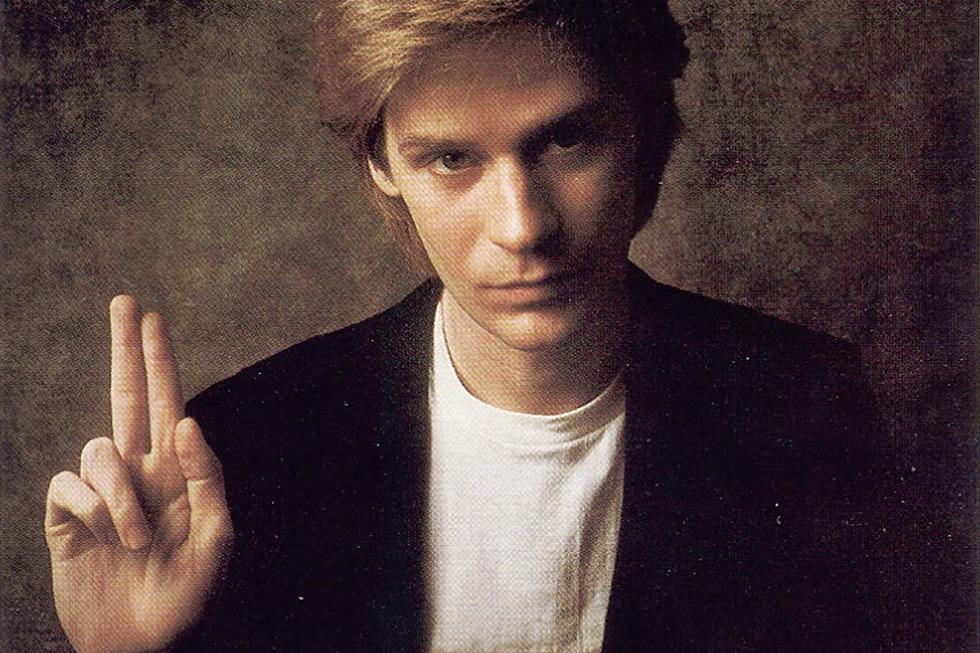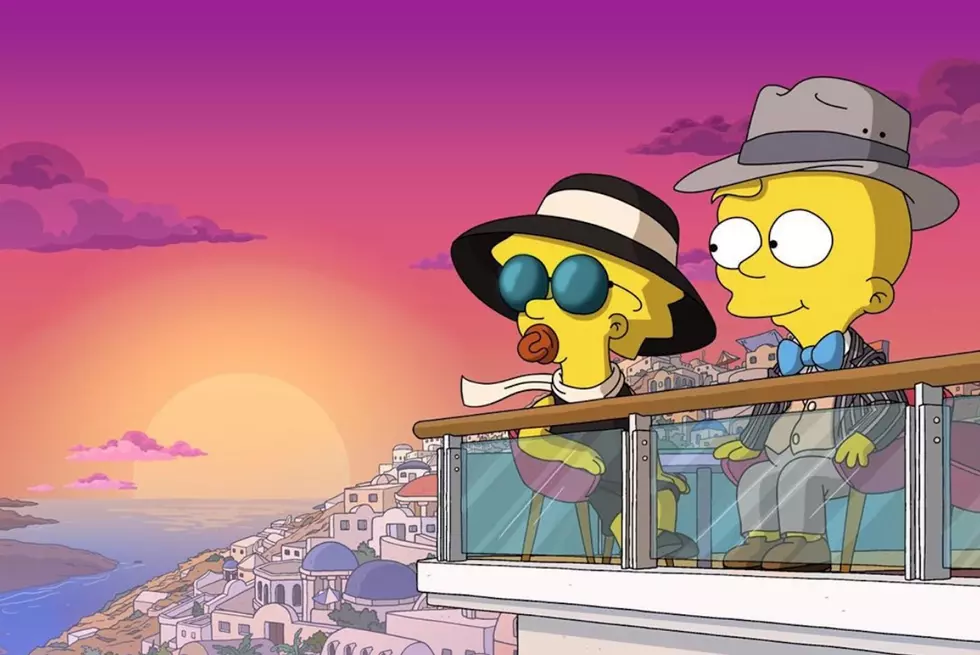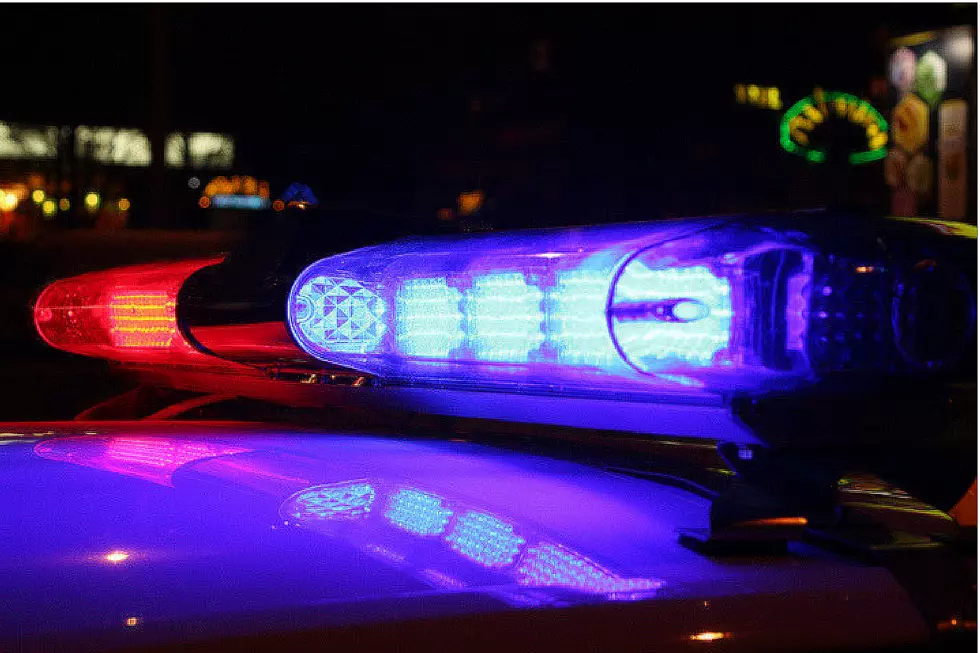
Why Daryl Hall’s Debut Solo Album Sat on a Shelf For Three Years
Robert Fripp heard something in Daryl Hall that was more interesting, and far more complex, than anything Hall and Oates were releasing in the '70s.
Hall's label just wanted him to continue a streak of Top 10 singles that began with 1976's "Sara Smile," continued through a re-release of "She's Gone" and peaked with 1977's chart-topping "Rich Girl."
Those two divergent ideas collided later in 1977 when Hall intersected with Fripp, who was at work on what became a loose trilogy of albums, beginning with Hall's debut album, then Peter Gabriel's second self-titled record in 1978 and finally Fripp's 1979 album Exposure.
RCA kept Hall's project, later dubbed Sacred Songs, off store shelves until March 1980. "I never could figure out why it was so late," Hall told the Cleveland Plain Dealer in 1979. "I was caught in the middle of record politics."
Any dream Fripp had of replacing John Oates as Hall's principal collaborator was dead by then.
"Daryl is a remarkable singer," the frustrated King Crimson mastermind told Best magazine's Jean-Gilles Blum in 1979. "It is too bad RCA is limiting the scope of his career. As for Hall and Oates, they are a very profitable group. They limit their format and possibilities on purpose as part of a commercial compromise they accept."
Scared Songs would make no such compromises, moving from nervy rock to glacial experiments with tape-loop technology dubbed Frippertronics, while taking a couple of side trips into expected blue-eyed soul along the way. "The songs are moody, in that they swing through a lot of moods," Hall told the Plain Dealer. "They touch on places where words couldn't go."
Listen to Daryl Hall Perform 'Don't Leave Me Alone With Her'
RCA didn't hear a single, but that wasn't the intent. Hall had hoped Sacred Songs would "give people some different perception of what I was all about," he told the Oklahoman in 1985. "Robert and I both wanted to expand outside of what people's normal preconceptions were of our individual work. People said it from his side, too: 'I can't believe you're working with Daryl Hall. Your music has nothing to do with his.'"
Hall argued that it did. Their sessions together bore that out, as this entire album was recorded at the Hit Factory in a matter of three weeks – first in a duo situation with Fripp followed by overdubs with Hall and Oates' touring band.
"We were just going to do what came natural to us," Hall told Pitchfork in 2007. "Either I would write the words with Robert or he had his girlfriend at the time who was writing some lyrics, and we would just come up with some lyrics. He would put a track together, and I would just sing. Everything was first takes; everything was spontaneous."
Hall then recorded vocals for Exposure, which would also serve as Fripp's solo debut. RCA ended up meddling in that process, as well: Hall was only allowed to appear on two songs, "You Burn Me up I'm a Cigarette" and "North Star."
"I was supposed to be the singer on that whole album – because he did my album, I did his album," Hall added. "[But] I was with RCA at the time, and they balked. They wouldn't allow my vocals to be put on his records. All the vocals you hear on Exposure are completely my ideas that were as best as could be done copied by other people, except for two or three songs. And that was really disheartening. That's when I completely fell out of love with the music business."
Fripp was just as disappointed. "I have been very depressed," he told Jean-Gilles Blum in 1979. "I can't even express my contempt for the people at RCA who are responsible for this decision."
Listen to Daryl Hall Perform 'Babs and Bads'
As Sacred Songs languished, a disgruntled Hall saw his work with John Oates suffer, too. They only scored one Top 20 hit during this long wait, 1979's "Wait for Me." Each album sold fewer than the last, bottoming out with X-Static – the first Hall and Oates project that had failed to go gold in five years.
The late '70s were "the lowest time that John and I had, as far as commercial success – as far as recognition in general," Hall told the Oklahoman. The breakout successes of Voices changed all of that in 1980, and RCA finally agreed to release Sacred Songs. Still, Hall said the three-year delay "was the worst thing that ever happened to me – and thank God I managed to overcome it."
The damage with Fripp, however, was already done. He ended up taking potshots at Hall and Oates in the press.
"When you get into a relationship or a collaboration with a musician, it's almost like a romantic relationship – and that's the best way I could put it. You get into somebody's heart. And Robert, I think, had visions that he was going to steal me away from John," Hall told Pitchfork. "And I think that he thought that we were going to work together. That was never my intention, and because of all the difficulties we had, that was his response to all that. I understand where he's coming from. That was his way of spraying out his frustration."
Buoyed by interest in the now-platinum selling Hall and Oates, Hall's left-field solo experiment managed to peak at No. 58 on the Billboard charts. Sacred Songs continued to grow in critical estimation too, ultimately becoming recognized as an early bridge between the long-established sound of progressive rock and the looming era of prog pop.
"Robert and I did as best we could through all that, but I think we made some really interesting music," Hall told Pitchfork. "I think taking somebody who comes from my background, and taking somebody who comes from his musical background, and putting them together, is a very interesting idea – to try and take two soulful sounds from two different cultures, and put them together, and form a third kind of music. And that was the idea."
See King Crimson Among the Top 100 Live Albums
More From Fun 104










